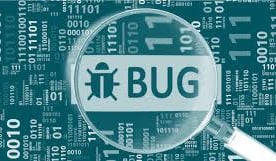Introduction
Think of your system as a high-performance engine. Without regular checks, even a small crack could turn into a catastrophic failure. Regular scans help you identify and address vulnerabilities before attackers can exploit them, keeping your defenses strong.
Abstract
Overview
Regular scans involve systematically checking your network, systems, and applications for security weaknesses. These scans can uncover outdated software, misconfigurations, or potential malware, allowing you to fix issues before they escalate.
In the world of cybersecurity, regular scans are as important as routine check-ups for your health. They ensure your systems are free from vulnerabilities that could leave you exposed to attacks. This blog will explore the importance of regular scans and why they’re a vital part of any robust cybersecurity strategy.


[Disclaimer: This blog post is for informational purposes only and should not be construed as legal or financial advice. Organizations should consult with legal counsel and regulatory authorities to ensure compliance with reporting requirements.]
Mandatory
For any cybersecurity strategy, regular scans are not optional—they’re mandatory. They are required by industry regulations like PCI-DSS, HIPAA, and GDPR, which demand proactive vulnerability management to safeguard sensitive data.
Applicability
Whether you’re a small business or a large enterprise, regular scans are crucial. They apply to all organizations that want to stay ahead of cyber threats and ensure their systems are secure.
Regulatory or Company Interest?
Maintaining security through regular scans is not only a best practice but a requirement for compliance with numerous global standards.
Key Guidelines
Schedule scans frequently, especially after software updates.
Use automated tools for continuous monitoring.
Act on scan results immediately to patch vulnerabilities.


Key Implications
Failing to perform regular scans can lead to undetected vulnerabilities, putting your systems and data at risk of attacks and breaches.
Countries with Adoption or Influence
Countries with stringent data protection laws like the EU, US, and Australia emphasize regular security scans as part of cybersecurity best practices.
International Frameworks Influenced
Global standards such as ISO 27001 and NIST encourage regular vulnerability scanning as a cornerstone of effective risk management.
Regional and Industry-Specific Frameworks
Industries like finance, healthcare, and energy require frequent scans due to the sensitive nature of their data.
Secure Your Digital Identity with SecureKnots
Contact us to learn more about our cybersecurity services and ensure your organization meets cybersecurity requirements.


Conclusion
Regular scans are essential to a secure environment. By performing consistent checks, organizations can stay ahead of potential threats and ensure they’re not caught off guard.
How SecureKnots Can Help
At SecureKnots, our VAPT (Vulnerability Assessment and Penetration Testing) services ensure thorough scans of your systems, identifying and addressing vulnerabilities before they can be exploited. We also provide Internal and External Audits to assess your security posture and help you stay compliant with regulations. With Security Awareness Training, we educate your team on the importance of regular scans and keeping systems secure. Let SecureKnots be your partner in maintaining a robust security framework.
This blog focuses on the importance of securing employee access to internal systems while showcasing how SecureKnots can help organizations strengthen their access controls. It is informative and engaging, highlighting the significance of Regular Scans Let me know if you need further adjustments!
Thank you for your attention! If you have any inquiries about cybersecurity requirements or need expert guidance, please don't hesitate to contact SecureKnots.
This should wrap up the blog and fulfill the promise made in the previous one!
Regular Scans
Just like you wouldn’t ignore a regular health check-up, your systems need regular scans for vulnerabilities. Regular scans are essential to ensure that everything is in tip-top shape and that no vulnerabilities go unnoticed. Think of it as routine maintenance that keeps your system in top form.
WITH OUR SHORT BLOGS
STAY UP TO DATE
Copy Rights @ 2023 SecureKnots. All Rights Reserved.
CONTACT US
Contact@Secureknots.com
USA
+1-302-601-2346
+1-302-608-6708
INDIA
080-31658865
GET IN TOUCH
